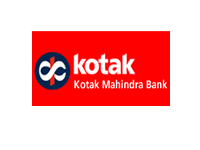Translation Services in Veterinary and Animal Care



Introduction
Translation Services in Veterinary and Animal Care: Ensuring Global Animal Welfare
The field of veterinary medicine and animal care is a vital aspect of public health, agriculture, and ecological balance. As animal husbandry, research, and veterinary practices become increasingly globalized, the need for accurate and culturally sensitive translation services has grown significantly. Translation plays a crucial role in ensuring that veterinary professionals, researchers, and animal care specialists can communicate effectively across languages and cultures. At Lingvopedia Language Solutions, we understand the unique challenges and opportunities within the veterinary sector and are committed to providing tailored translation services that support animal welfare globally.
The Importance of Translation in Veterinary Medicine
- Access to Knowledge and Research:
- The veterinary field is continually evolving, with new research, techniques, and treatments emerging regularly. Translation services are essential for disseminating knowledge across linguistic barriers, allowing veterinarians and animal care professionals to stay informed about the latest advancements in their field. By translating scientific articles, research papers, and guidelines, translation services ensure that valuable information reaches a wider audience, promoting better animal care practices and health outcomes.
- Regulatory Compliance:
- Veterinary practices and animal health products are subject to various regulations that differ from country to country. Accurate translation of legal documents, product information, and compliance materials is crucial for ensuring that veterinary professionals adhere to local laws and standards. Translation services help mitigate legal risks by providing clear and precise translations of regulatory texts, enabling veterinarians to navigate complex legal landscapes confidently.
- Client Communication:
- Effective communication between veterinarians and pet owners is essential for providing quality care. Many pet owners may not speak the local language, creating a barrier to understanding their pets’ health needs. Translation services facilitate clear communication by translating medical records, treatment plans, and client education materials into the languages spoken by pet owners. This not only enhances client satisfaction but also ensures that pet owners fully understand their responsibilities and treatment options.
Key Aspects of Translation Services in Veterinary Medicine
- Specialized Veterinary Terminology:
- The veterinary field is filled with specialized terminology that can vary significantly across languages. Translators working in this field must possess a deep understanding of veterinary science, including anatomy, diseases, and treatments. At Lingvopedia, our team of translators includes professionals with veterinary backgrounds, ensuring that translations are not only accurate but also contextually appropriate and scientifically valid.
- Cultural Sensitivity:
- Animals hold different cultural significance across the globe, and attitudes toward animal welfare can vary widely. Translators must be culturally sensitive and aware of local customs, beliefs, and practices when translating veterinary materials. This sensitivity is particularly important when creating educational content for pet owners or materials that promote animal welfare, as it ensures that messages resonate with diverse audiences and respect local values.
- Emergency Communication:
- In veterinary emergencies, time is of the essence. Translation services must be swift and accurate to facilitate immediate care for animals in distress. This includes translating emergency protocols, triage guidelines, and critical care instructions for multilingual veterinary teams. The ability to communicate effectively in high-pressure situations is crucial for ensuring positive outcomes for animals requiring urgent medical attention.
- Collaboration with International Organizations:
- Veterinary medicine often involves collaboration with international organizations, NGOs, and research institutions. Translating reports, grant proposals, and collaborative research documents is essential for fostering effective partnerships and ensuring that all stakeholders are on the same page. These translations can facilitate the sharing of best practices and research findings, ultimately benefiting animal health and welfare worldwide.
Challenges in Veterinary Translation
- Complexity of Veterinary Language:
- Veterinary terminology can be complex, with specific terms and phrases that do not have direct translations in other languages. Translators must navigate these complexities and provide clear, understandable translations while maintaining scientific accuracy. This requires not only linguistic skills but also a solid understanding of veterinary science.
- Evolving Practices and Knowledge:
- The veterinary field is continuously evolving, with new research and practices emerging regularly. Translators must stay updated on the latest developments to ensure that their translations remain relevant and accurate. This necessitates ongoing education and engagement with the veterinary community to understand new terms and practices.
- Ethical Considerations:
- Translating materials related to animal welfare and ethics requires a deep understanding of the ethical implications of veterinary practices. Translators must be aware of the cultural and social factors that influence attitudes toward animals to ensure that translations reflect a commitment to animal welfare and ethical treatment.
























- Agriculture/Environment Translation Services
- Architecture Translation Services
- Arts Translation Services
- Automation/Engineering Translation Services
- Biochemistry Translation Services
- Biology Translation Services
- Chemistry Translation Services
- Communications Translation Services
- Computers/IT Translation Services
- Cooking/Food/Beverages Translation Services
- Financial/Economics Translation Services
- Hardware/Construction Translation Services
- Education/Training Translation Services
- Film - Theatre Translation Services
- Health and Beauty Translation Services
- History Translation Services
- Insurance Translation Services
- Internet/Multimedia Translation Services
- Hospitality Industry Translation Services
- Journalism - Press Translation Services
- Legal Translation Services
- Literature/Publishing Translation Services
- Music Translation Services
- Patents/Intellectual Property Translation Services
- Physics Translation Services
- Politics Translation Services
- Psychology/Psychiatry Translation Services
- Real Estate Translation Services
- Social Sciences Translation Services
